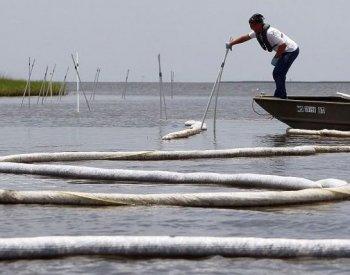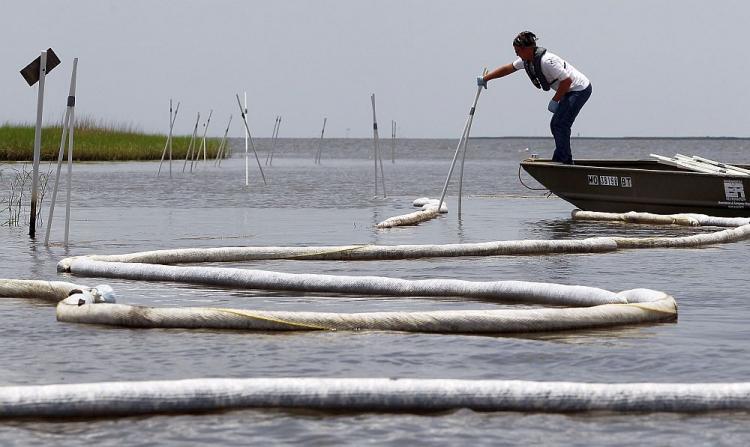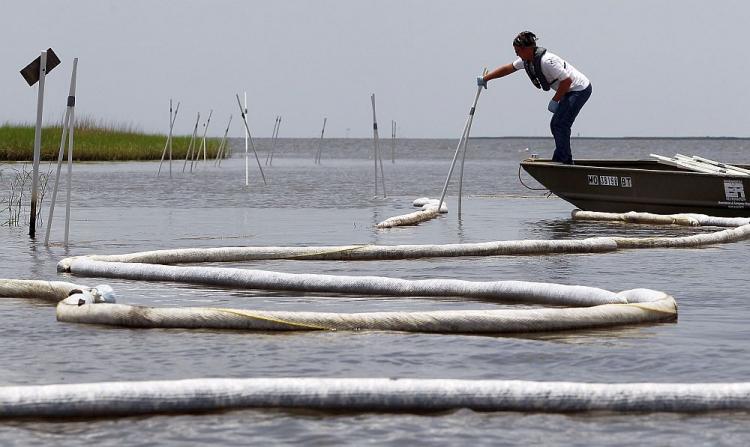BP Oil Spill Taking Toll on Louisiana Indian Tribe
The effects of the BP oil spill on the Pointe-au-Chien Indian tribe’s economy has been devastating.

A worker makes adjustments to oil boom July 19 near Pointe Aux Chenes, La. The Pointe-au-Chien Indian tribe has lived along the threatened marshes for more than 100 years and make their livelihood on the water. Mario Tama/Getty Images
|Updated:
Joshua Philipp is senior investigative reporter and host of “Crossroads” at The Epoch Times. As an award-winning journalist and documentary filmmaker, his works include “The Real Story of January 6” (2022), “The Final War: The 100 Year Plot to Defeat America” (2022), and “Tracking Down the Origin of Wuhan Coronavirus” (2020).
Author’s Selected Articles






